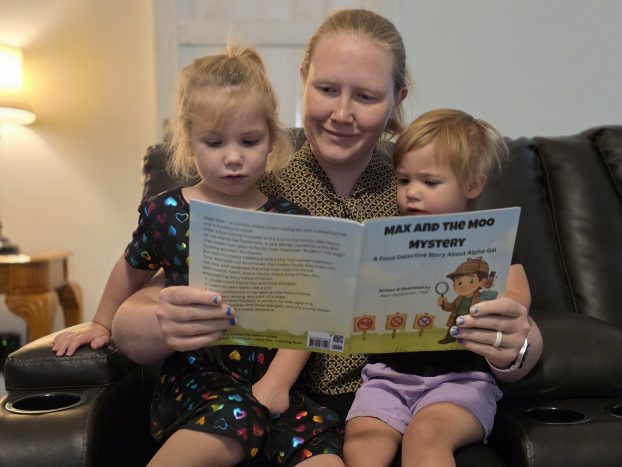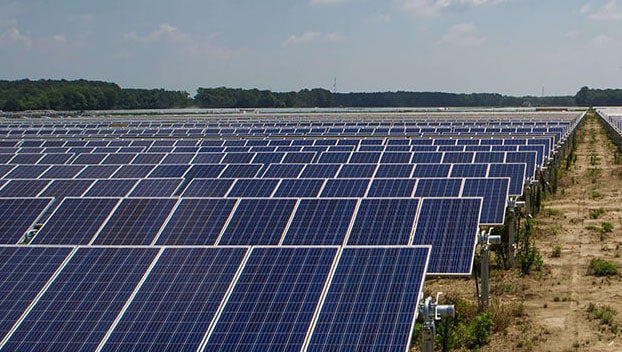Taro Solar question answered by Charlotte County supervisors
Published 11:39 pm Saturday, July 26, 2025
|
Getting your Trinity Audio player ready...
|
Things are moving forward for Taro Solar, after Charlotte County supervisors voted on the compliance question in their meeting this month. Supervisors voted that they found the project is in compliance with the county’s comprehensive plan.
To be clear, this was not an approval of the project itself. It still has to go through a few months of work before even coming back to supervisors for that vote. This instead has to do with a request from the company.
During the planning commission’s June 26 meeting, instead of moving forward with their request for a conditional use permit, Taro officials asked commission members to make a determination. In order to avoid issues later on in the application process, they wanted the commission to certify that Taro was in fact in compliance with the county’s current comprehensive plan. After some discussion, the commission members voted 6-3 in approval, with two members absent. Yes, they said, the Taro project would be in compliance with the comprehensive plan.
Since the planning commission is just an advisory group, the question then had to be answered by Charlotte County supervisors, who did that during their Wednesday, July 9 meeting.
Some caution while looking ahead
Supervisor Hazel Bowman-Smith told the rest of the board there was a lot of discussion at the planning commission about both the location and timing of the project. In addition to being the board’s vice chair, Bowman-Smith serves as a liaison between the supervisors and planning commission.
Trending
“It’s so close to other facilities that have already been approved and if all the construction starts at the same time, there could be a lot of congestion, a lot of road damage if it’s all going on at the same time,” Bowman-Smith said. While she saw no reason to disagree that it’s in compliance, the actual project will need a closer look when it comes back to the board.
“While it’s in compliance with the (comprehensive plan), as we work through the project itself and the siting agreements, I think we’re going to have to look more deeply at the timing of everything, particularly the construction and proximity to everything,” Bowman-Smith said.
Supervisors Chairman Walt Bailey agreed that there would be some concerns to discuss, when the project made its way back to the supervisors.
“I have some grave concerns about moving forward about yet another project when we haven’t got some of the others built,” Bailey said. “And the timing and the disruption.”
With that in mind, supervisor did agree that the project is in compliance with the comprehensive plan. That means Taro Solar goes back to the planning commission, set for more discussion during the group’s Thursday, Aug. 21 meeting.
What is Taro Solar?
So just a quick refresher on what the project is. This would be a 140-megawatt project on 35 parcels, spread out over 2,117 acres. Roughly 1,073 acres of that land would currently be in the fenceline, with the developed portion spanning 51% of the total acreage.
Trending
Based on the current proposal, there would be 304,850 solar panels, 36 inverter pads and above ground utility poles used as part of this project. The current plans also call for 75-foot setbacks to neighboring properties and a 125-foot front setback,with a vegetative buffer and six gated entrances.
There are two dams on the property, along with 146 acres of wetlands and bodies of water. That, combined with the fact a portion of the property is labeled as “steep slopes” has raised concerns from local residents. As a way to counter those concerns, project officials want to do some grading on site and set up 200-foot setbacks from the dam reservoir easement. Taro officials in their application also promise to avoid building downstream of the dams.
Taro Solar also wrote in a May 23 letter to Charlotte officials that they would convert 402 acres of the property to a conserved open space and some of the other unused land would be set aside for things like “pollinator species planning and the development of quail habitats through collaboration with the Quail Forever organization and the Virginia Department of Natural Resources.”
What did the commission say?
So why did the planning commission say the project is in compliance? The majority gave several reasons. First off, they cited its location. The project is in the northern part of Charlotte County, adjacent to Thomas Jefferson Highway and Taro Road, before extending out south to Welsh Tract Road. It sits 1.8 miles south of the border between Prince Edward County and Charlotte County, and 2.4 miles north of the Charlotte Court House town limits. That land is zoned general agriculture, which allows solar as a use.
Second, as referenced above, it is more than two miles from the nearest town boundary. The nearest would be Charlotte Court House, at 2.4 miles away. Third, the commission argued that the solar project would generate “alternative, clean energy, temporarily providing a significant number of construction jobs and generating long-term revenue for the county.”
Those were the major reasons for compliance cited by the commission.
Now the project also gets brought up because its owners are asking for a waiver. The property is within five miles of Tall Pines, County Line, Gibson and the Austin Goldman V solar projects. That means as it stands, if Taro Solar were to be approved, 6.31% of that five mile stretch of land would be covered in solar panels. Charlotte County flags any such stretch that goes over 3% of the land mass, so the Taro Solar group is asking for a waiver. It’s worth pointing out that the Austin Goldman V project is pretty much dead at this point. Even though it was approved, the ownership group has terminated their conditional use permit. In fact, part of that land is being acquired by Taro.
Taro officials also say they plan to take precautions, in terms of any potential graveyards or cemeteries on the property. One gravesite has been identified at the northern end of the Taro property, with a setback proposed and a planned waiver that has to be signed before the site can be accessed. Seeing as the project boundary is 400 feet from Saint Andrews Church, with equipment 951 feet away from the church cemetery, the company’s revised application asks for a setback of 1,000 feet. The company also agrees to do a cultural and historic resources assessment to find any additional cemeteries or gravesites. In their analysis, Charlotte County staff said as it stands, the application looked fine. However, if additional cemeteries are found on the property, then the county may need to take another look.
Financial impact from Taro Solar
So currently, what would the project’s financial impact be? In their May 23 letter to Charlotte County leaders, company officials estimate that Taro Solar will “generate approximately $215,600 in revenue share payments annually, commencing in 2030 and increasing by 10% in amount every 5 years thereafter. Over the Project’s lifespan, the County will collect approximately $10 million from revenue share payments alone.”
Additional payments would be made to the county in accordance with any terms set up in a negotiated siting agreement, company officials added.






